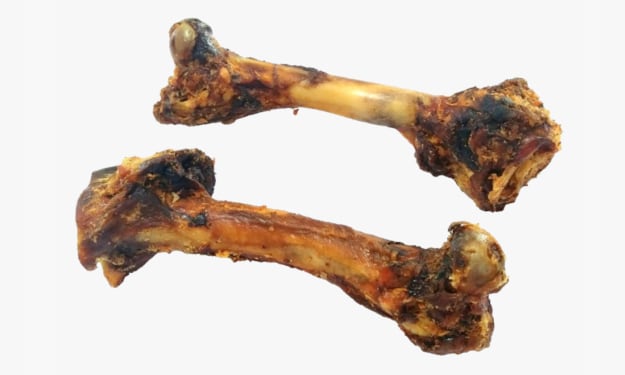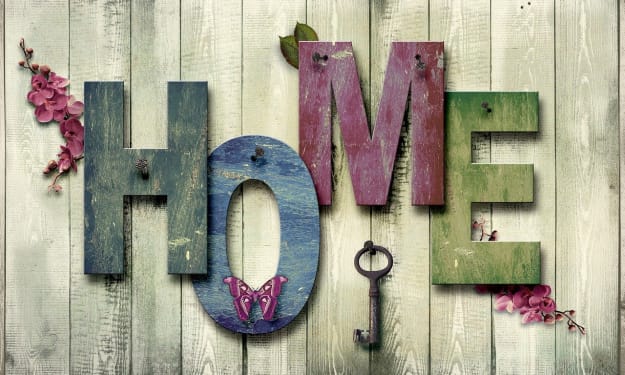The fear ends here: why men must do the decent thing
In response to Vocal+ creator Katie’s story, It Might Not Be All Men But It Is All Women

“If they can put one man on the Moon, why don’t they put them all up there?” a guest on BBC Radio 4’s Woman’s Hour once asked, the passion in her voice suggesting a thousand unspoken and entirely understandable reasons why she felt that way.
She wasn’t a dyed-in-the-wool man-hater, so far as I know, but like so many women all these decades later, her experience of men had driven her to utter exasperation.
Add to that the very real everyday fears women have - fears that my fellow Vocal+ creator Katie expressed so succinctly, eloquently and powerfully in her timely story It might not be all men, but it is all women - and it’s easy to see why the clamour for things to change may well engender the biggest women’s rights movement since the Suffragettes.
Those women of a century ago wanted dramatic social change, too, but they realised that if they waited for men to give it to them, they’d be waiting forever.
That’s why women of all walks of life from Duke’s daughters to dustmen’s said enough was enough and vowed to put up with the most unspeakable punishments and humiliations until the world - or, specifically, the men in control of it - finally listened.
Brutal
It took a Suffragette, Emily Davison, to throw herself under the King’s horse in the 1913 Derby - killing herself but giving birth to the freedom that so many women enjoy today - before the males who’d ignored and disparaged the campaign finally felt sufficiently ashamed to change the legislation and allow women to have the vote.
Today, in contrast, our future King’s daughter-in-law, the Duchess of Cambridge, was one of the first to go, unprompted, to the makeshift shrine on Clapham Common to lay flowers in remembrance of Sarah Everard, a woman whose brutal killing has sparked international outrage at the way women have to restrict their own lives through fear of attack by men.
Both Kate, the Duchess, and Katie, the Vocal+ creator, are on exactly the same page, as are millions of women who want to live their lives free of the limitations they place on their own lives to avoid ending up in the next grave-space along from Sarah.
If there’s a single glint of hope in all this darkness, it’s that millions of men feel the same way, too.
But just as white people who’ve never suffered racism can think it’s not that much of a problem, men who’ve never had to make all the adjustments that women do just to get through their everyday lives safely can be blissfully oblivious of it.
Until now.
Thanks to Kate, and Katie, and the many other women who are speaking out about their experiences and calling for change, we suddenly, belatedly, have a national debate.
Criminal
Why, they ask, should women have to change the way they dress or look or behave in order to avoid sexual harassment, sexism, attack or murder?
It’s men who need to change their behaviour, they say, rather than women modifying theirs to avoid becoming victims.
It won’t be easy, but it has to be done.
In theory, the whole problem could be solved literally overnight. Men could stop behaving like that. Just as every police officer in the world would become redundant this instant if people simply refrained from criminal activity.
But men - or, to be precise, a very small minority of men - will no more stop behaving like that than the world’s criminals will decide to live law-abiding lives instead.
How we stop men behaving appallingly to women is the issue, and there are no easy answers.
Risk
Katie, and many others, say nothing will change until other men call out those who are treating women badly.
That’s undoubtedly true, but easier said than done.
If a woman sees a man acting badly in public, and feels sufficiently brave, she can say things to him that no man would ever get away with.
If a man said the same, it would be seen by the sort of thugs who abuse women as a direct challenge to their masculinity, and that challenge would almost certainly be met with extreme violence.
It shouldn’t, but it would, which means that any man who decided to challenge another, in public, for making a sexist remark or wolf-whistling at a female would either have to be considerably bigger than him and well-versed in physical combat techniques, or run the very real risk of being beaten to a pulp or, quite possibly, killed.
It could be viewed as a noble way to die, to do so in defence of a woman’s feelings, but how many women would seriously want their modest-physiqued brothers, fathers, boyfriends or nephews to die on a pavement over an unwanted wolf-whistle?
Racist
If a woman were in physical danger, however, I’d like to think that any man, however small or weak, would give his last breath in an effort to save her, and that his bereaved loved ones would be proud that he had.
As someone whose brain is rather more developed than his muscles, I’ve stood up to, and denounced to his face, a racist who was expounding his views to a group of people at a flying club who largely disagreed with him but were afraid to say anything because he outranked them socially and was a dominant character.
His face when I challenged him was a picture, and there were gasps from those who presumably would have liked to have said the same, but he was 20 years older than me, had a reputation to lose, and didn’t look like a bar-room brawler itching for the slightest excuse to get physical.
But what if he’d been enormous, aggressive, and dying for a chance to take out his frustrations on someone weaker - a man, like so many, who got his kicks from knocking people’s teeth out, rendering them infertile, or breaking as many of their limbs as he could in one go?
Would I have said anything? Would you?
In the case of that racist, none of the people he was disparaging were present. Fancy that! But if they had been, and even if he’d been the biggest man I’d ever seen, I’d like to think I would have intervened, whatever the consequences, while hoping to God that enough of the others present would have come to my defence if needed.
Intimidating
Physical interventions apart, there are so many things that ordinary men can do to make life easier for women and to reduce the fear they live with every day.
• Not commenting on their appearance, unless invited to, would be a start.
• Giving them space (in post-Covid times) on pavements, in doorways, or on Tube or Subway trains, will help them feel more physically secure.
• If you’re walking along a quiet street and there’s a woman in front of you, consider crossing the road so she won’t think she’s being followed.
• If you’re wearing a hoodie or something else that might look intimidating to anyone meeting you in a dark alley, however peace-loving you are, consider removing it and giving a reassuring smile so she realises you’re not a threat.
* If a woman needs your help but is scared to accept it because you’re the “strange man” she’d been taught to avoid, suggest she takes a picture of you and sends it to a friend before you help fix her car or offer her a lift or whatever. Nobody with ill-intent would do that, for obvious reasons.
• If you see a woman being verbally abused or harassed, though not physically threatened, and don’t feel you can intervene, at the very least film it as evidence and call the police or call for help, and let her know that you’ll give her all the support you can.
• Don’t say nothing if you’re in a work situation or a social gathering and dominant males are disparaging women, putting them down, mansplaining, or belittling their achievements. Stand up for them, contradict the perpetrator, demand a retraction or apology. You won’t be physically attacked in a situation like that, and you’ll probably find your ears ringing with applause as all the others who didn’t have your courage show their appreciation.
• Most importantly, ask the women in your life - your sisters, daughters, girlfriends, mothers, grandmothers, nieces, friends and colleagues - what you can do to help them feel less fearful of men in everyday situations. And listen to what they say.
There will be some who suggest it’s outrageously sexist to even suggest that women need any protection from men - sisters, indeed, are doing it for themselves, and in many ways rather better than men - but don’t be discouraged from offering that help to those who do want it.
The actual threat to women is infinitely smaller than the threat they perceive as they walk alone at night or wear a daring outfit or get in a lift with a man they don’t know - but our job, as the decent majority of men who’d rather die than be any sort of danger to women, is to act in ways that change that perception so that women can get on with their lives on their own terms instead of always viewing it through a filter of fear of how men might react.
It’s not exactly asking for the Moon, is it?
• Katie’s story, It might not be all men but it is all women, is well worth a read and expresses the problem much better than I can.
About the Creator
Jon McKnight
I have left Vocal.






Comments
There are no comments for this story
Be the first to respond and start the conversation.